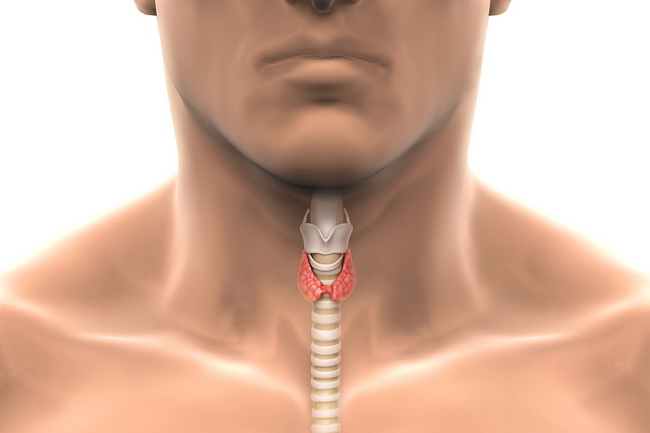- Make It Yourself Lavender Heart-Shaped Bath Bombs!
- 20 Things You Never Knew About “Down There”
- 12 Best Foods For Those Suffering From Arthritis Pain
- 12 Personal Hygiene Mistakes Almost Everyone Makes (Mom Never Told You About #4!)
- 15 Medicinal Plants And Herbs From The Cherokee People
- 12 Mind-Blowing Benefits Of Drinking Coconut Water During Pregnancy
- 12 Outstanding Winter Foods That Won’t Fatten You Up Like A Christmas Turkey
Is Your Thyroid Affecting Your Heart Health?
The thyroid is one of the most important glands in the body. What most people are not aware of is that problems with the thyroid can reverberate outward and cause issues in many other regions of the body, including the heart— even if your heart health is in good health in every other respect. A new Dutch study suggests that monitoring thyroid activity may hold the key to preventive heart care. Let’s explore what the facts are so you can educate yourself about the relationship between the heart and the thyroid.
What is the thyroid gland, anyway?
Many people have heard of medical conditions like hypothyroidism, but if you were to ask the average person on the street what the thyroid gland is, they’d probably struggle to give you an answer. It’s not that surprising— the thyroid isn’t exactly as universally known as say, the lungs or liver, but if you don’t know what they thyroid gland is and what it does, now is the time to learn, because it might be the most important gland in your body.
The thyroid is a butterfly-shaped gland at the bottom of your throat which makes up part of your body’s endocrine system. The purpose of this gland is to release hormones which regulate critical functions in other parts of the body. Essentially, the thyroid acts kind of like a clock in a computer that makes sure things happen in other parts of the system when they are supposed to happen. The hormones released by the thyroid regulate your breathing, heart pumping, body temperatures, menstrual cycle in women, central nervous system, peripheral nervous system, body weight and more.
The thyroid gland uses iodine obtained from dietary sources to produce two kinds of hormones: Triiodothyronine, or “T3” and Thyroxine, or “T4”. Excessive levels of T3 and T4 can lead to a condition known as hyperthyroidism, while levels too low can result in condition called hypothyroidism, each of which can lead to serious illness. It’s the high levels of a form of T4 called free thyroxine 4 which leads us to some recent heart-related findings.
Continue to Page 2
The Thyroid and the Heart
A new study conducted in the Netherlands suggests that middle-aged adults with high, as well as high-normal levels of free thyroxine 4, may have a much higher risk of serious heart disease than adults with lower levels.
Specifically, it appears that higher than average levels of free thyroxine 4 can increase the risk of hardening of the arteries, a serious cardiovascular condition known as atherosclerosis. When this happens, fat accumulates in certain places inside arties and begins to harden. This hardened fat (also called plaque) can begin to obstruct blood flow, and eventually cause a heart attack or stroke.
Its purpose is to release important hormones which regulate essential bodily functions. It would appear that high levels are free thyroxine 4 (in other words, an over active thyroid) are a direct indicator that someone is at risk of developing one of these cardiovascular diseases, but it’s not quite that simple.
READ ALSO: Can Brain Activity Really Predict Blood Pressure And Future Cardiovascular Health?
While the study does demonstrate an association between an overactive thyroid and heart disease, it does not prove a direct cause-effect relationship. More research needs to be done, but since it is already well established the elevated levels of T4 can cause hyperthyroidism, it is a good idea for those with the condition to do whatever they can to mitigate the negative effects of an overactive thyroid. This new research could, in time, prove to be a breakthrough in preventing heart disease and giving people living with thyroid problems the chance for healthier lives.
References:


































